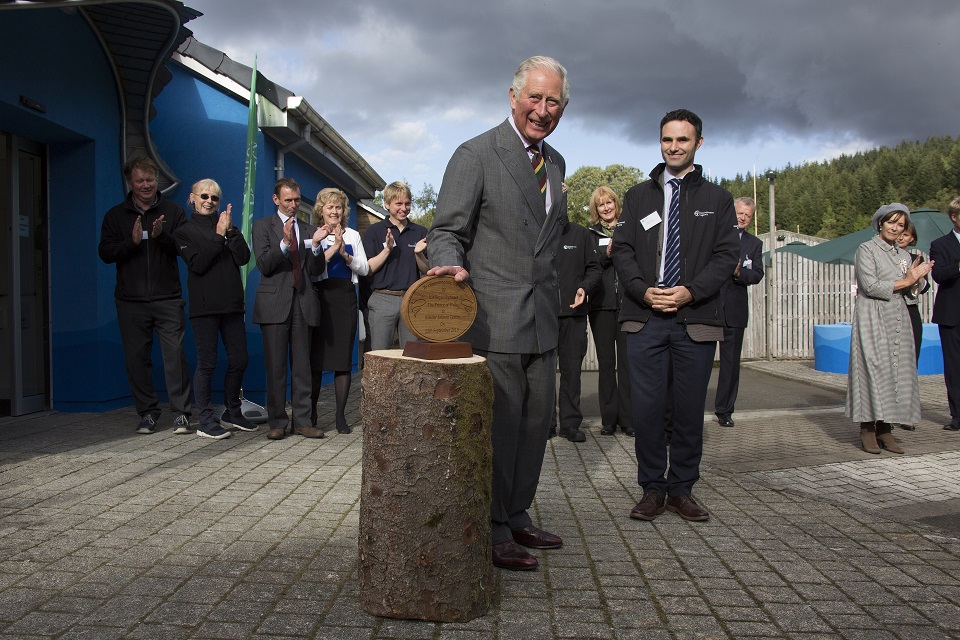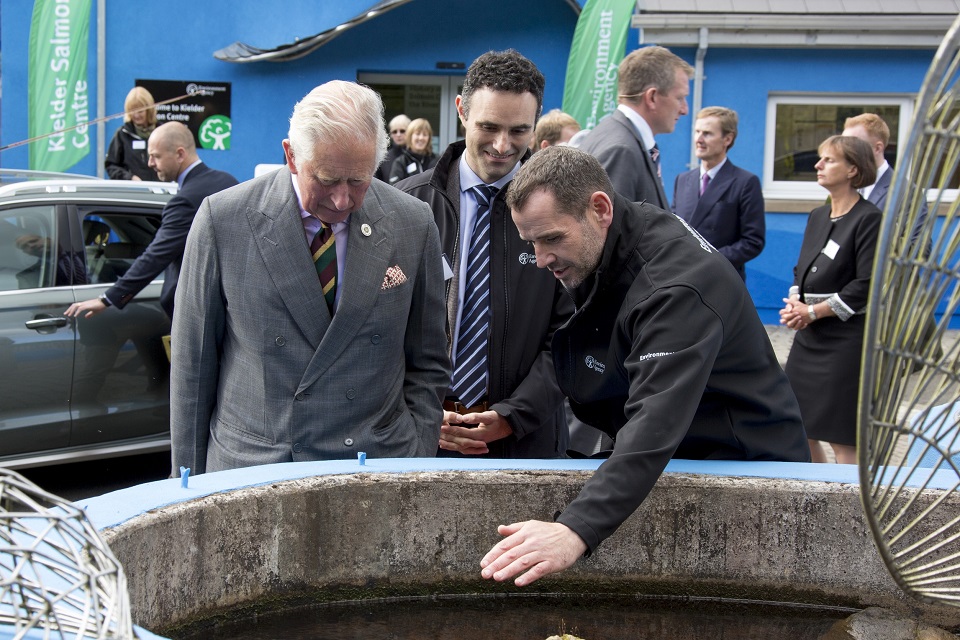Mr Speaker I wish to take this opportunity to update the House on recent developments regarding the scallop fishery in the Bay de Seine following altercations that occurred on the 27 August. Any violence taking place is unacceptable and the safety of our fishing fleet is paramount. Subsequent negotiations have regrettably not resulted in an agreement.
The scallop fishery is not governed by the quota regime that pertains for most fin fish species but instead by the Western Waters Regime which places limitations on effort for larger vessels over 15 metres. Vessels over 15 metres in size are limited by the number of kilowatt days they spend at sea and these units of effort are tradeable between producer organisations in much the same way that quota is. Vessels of under 15 metres in length are not subject to the Western Waters Regime and do not require an effort allocation.
The background to the current dispute is that French domestic law requires that French vessels cannot trawl scallops between 15 May and 31 October, at the latest, partly to protect the species during their seeding season and partly to maximise the scallops’ economic value. Preserving the sustainability of our stocks is important – between May and June UK fishermen refrain from fishing in the area to avoid the scallop gestation period. These domestic French rules do not apply to other EU Member States.
The French have recognised the UK industry’s legal right to fish in the Bay of Seine. UK fishermen have a smaller allocation of scallop fishing effort under the Western Waters Regime due to historic allocation methodologies. UK fishermen are allocated 3,3 million KW days and French fishermen are allocated 7,4 million KW days. As a result, since 2013, the fishery in Bay de Seine has been subject to an industry agreement. UK 15 metre and over scallop fishing industry have agreed to voluntarily observe this non-trawling season in the English Channel – including in the Bay of Seine – in exchange for more fishing effort from France. The agreement has never applied to the under 15 metre fleet since they do not benefit from the inward transfer of effort.
The agreement that has been in place for five years broke down this year because the French industry insisted that the under 15 metre fleet be included in the voluntary agreement. The UK industry was unable to carry the under 15 metre fleet with such an agreement since under 15 metre vessels would receive nothing in return. As a result, no agreement was reached in 2018.
On 27 August there were altercations between UK and French scallop fishers in the Bay of Seine. Some 35 French boats confronted a smaller number of UK vessels with reports of rocks and smoke bombs being hurled at UK mariners.
The incidents of 27 August occurred as a result of French industry’s continued frustration at not being able to fish in the Bay of Seine while UK vessels were able to do so following the failure to reach a voluntary agreement.
It must be stressed that the UK vessels were not contravening any French, or EU, law in fishing in those waters at that time. The UK vessels were operating in an area where they were legally entitled to fish. The area is outside French territorial waters – that is to say beyond 12 nautical miles.
Under the Common Fisheries Policy, the vessels of EU Member States have the right to fish in each other’s Exclusive Economic Zones (that’s the waters between 12-200 nautical miles offshore). It is then the responsibility of each country to control the activities taking place in their waters. Therefore, we look to the French authorities to protect our fishermen and their vessels if they chose to fish legally in French waters. Our analysis of vessel monitoring information from 27 August showed that there were 16 vessels in the area from England, Scotland and Northern Ireland.
Since the night the incidents took place, UK vessels have voluntarily chosen to stay away from the Bay of Seine while discussions to resolve the issue are ongoing. Vessels have tended instead to fish in grounds to the east.
The Fisheries Protection Squadron has been kept informed of developments. The Fisheries Protection Vessel, HMS Mersey, has been in the waters of the south coast since the incident took place.
Fisheries Protection Vessels operate within UK waters that is the area out to 200 nautical miles from shore or the median line. The vessels are unable to enter the waters of another country without invitation except in very limited circumstances – the protection of safety of life at sea in the event of there being a threat to life or the right of innocent passage enabling vessels to transit through an area without interference.
As the Bay of Seine is in the French Exclusive Economic Zone enforcement and the safety of vessels in those waters is the responsibility of the French authorities.
What action we have taken
The UK Government has been proactive in supporting industry in trying to secure an acceptable solution for both sides.
Immediately after the incidents on the 27 August, my officials convened a meeting in London. UK and French officials and UK and French industry representatives met in London on 5 September.
There was initial success in the talks. It was decided to renew the previous agreement involving the UK 15m and over vessels as long as the under 15m fleet could also be brought into a deal. This was agreed in principle, subject to further discussion about a reasonable compensation package. The agreement was that there would be an inward transfer of quota for other species from the French industry to the UK industry which could then be leased to create financial compensation for the scallop vessels affected.
The details of that package were discussed, again between UK and French officials and UK and French industry, in Paris on 7 September. Progress was made around the dates that the fishery could be open. However, the compensation sought by the industry for loss of earnings during the period that it was unable to fish in the Bay of Seine was significantly different to the proposals made by the French industry.
Minister Travert and I discussed the progress of the negotiations twice, including on the evening of 7 September.
Since our call, UK and French officials have shared their analysis this week and held discussions on Tuesday. There was a greater understanding of the UK’s evidence. However, the offer made by French industry remained unchanged from that discussed in Paris on Friday.
UK industry does not believe that the compensation package proposed by the French fishing industry provides sufficient recompense for their projected loss of earnings and has therefore rejected it on that basis. The French industry are currently unwilling to accept an offer to put back in place the agreement that has applied to the over 15 metre fleet for a number of years. As a result the talks have broken down and there remains no agreement at all.
Next steps
I have today written to Minister Stephane Travert to express my disappointment on not reaching an agreement. The UK government has offered to assist French enforcement authorities with MMO personnel should they want to consider joint operations given the risk of further altercations.
I have also asked the French government to consider the alternative options available to them. Firstly, it seems to me that putting back in place the agreement for the over 15 metre fleet which has stood the test of time over the last five years would be preferable to no agreement at all and I hope that the French industry will reconsider their position in this regard.
Secondly, it is open to the French government to lift the domestic restrictions they have in place earlier than they normally in order to address concerns that their industry have expressed about the lack of a level playing field.
The UK industry is legally allowed to fish in the Bay of Seine. They have shown commendable restraint during the negotiations and I welcome their cooperation and understanding.
It is for the industry to decide where they fish as long as it is done legally. In my letter to Minister Travert I have emphasised the absolute need for safety to remain paramount.
I hope a mutually beneficial outcome might still be agreed between the two industries but in the meantime we stand ready to offer what assistance the French government may wish to consider.

